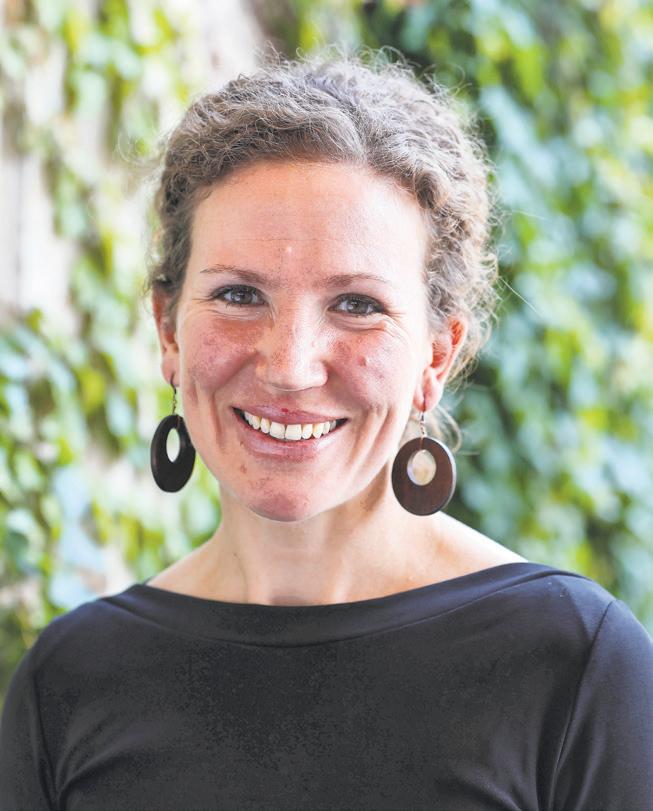
2 minute read
Mars’ website a resource for Missing and Murdered Indigenous Women
By Christa Lawler clawler@duluthnews.com
The first name Mak Mars added to his website Justice for Native Women in 2015 was Sheila St. Clair, a Duluth woman who was last seen in mid-August of that year. St. Clair had planned to go to the White Earth Reservation in western Minnesota, and then she was gone.
“People I knew were affected by it,” Mars said. “I wanted her to be first.”
Since then, Mars has collected more than 2,400 names, photos and circumstances surrounding cases of Missing and Murdered Indigenous Women. The website, with an eye toward respectfully reporting all available information, gets an estimated 10,000 hits per month and Mars has become a go-to for related task forces and is co-author of an Arizona-based study that uses his data.
By day, Mars works as an advocacy supervisor at Program to Aid Victims of Sexual Assault, and is one of this year’s 20 Under 40 award winners. Nominator Mary Faulkner said on the nomination form: “For his entire professional career, Mak has worked to empower those who have experienced violence or other crises in their lives” and also “Mak has introduced the PAVSA staff to K-Pop.”
Mars’ background is in Ojibwe language and cultural education. Among the facts of his life: He’s a descendant of Ojibwe Chief Joseph Osaugie, who was the head of a band from Fond du Lac who lived on Wisconsin Point — a place they were forced to move away from in 1918. Even the graves were relocated to a church cemetery in Superior, according to a story in the News Tribune. Descendants gather annually for a reunion on the land.
He came to the website by way of a career in social work and a mysterious death in the family. His grandmother’s cause of death indicated that she had had an epileptic seizure, hitting her head on a rock 40 times before she died.
“That’s really unusual. Also, my grandmother was not epileptic,” he said.
Mars’ research includes unsolved cases dating back more than 70 years. Louise Lorraine Laderoute, a Canadian woman, disappeared in 1950. Jacqueline White Cloud is a Minnesota woman, a veteran of the U.S. Army, who has been missing since 2017. He adds as much information as he can find to each profile. Sometimes there is a lot: St. Clair’s has links to news reports. Some- times there isn’t even a photo or name. Consider the case of a Jane Doe from Belew’s Creek, North Carolina. A dog found a skull and not even an age could be determined. And he does it with respect.
“I want to present the information in a way that honors the person that they were,” he said. “I also want to do it in a way that’s not further harmful.”
What do you do?
(job, community involvement)
I am an anthropologist of law and an assistant professor at the University of Minnesota Medical School, Duluth.

How do you spend your free time?
I’m a big fan of running Duluth’s great hills and family dance parties.
Tell us about an influential person in your life.
Kathryn Dudley is an anthropologist who wrote “Debt and Dispossession,” a book about the 1980s farm crisis. My parents lost their farm when I was 5, and it was something we could never talk about as a family because there was so much grief around it. I read “Debt and Dispossession” in my 20s, and to have someone explain something that was so structurally complex and so deeply personal was like turning on a light bulb.

Because of that book, I believe that really good anthropology makes sense of politi-









